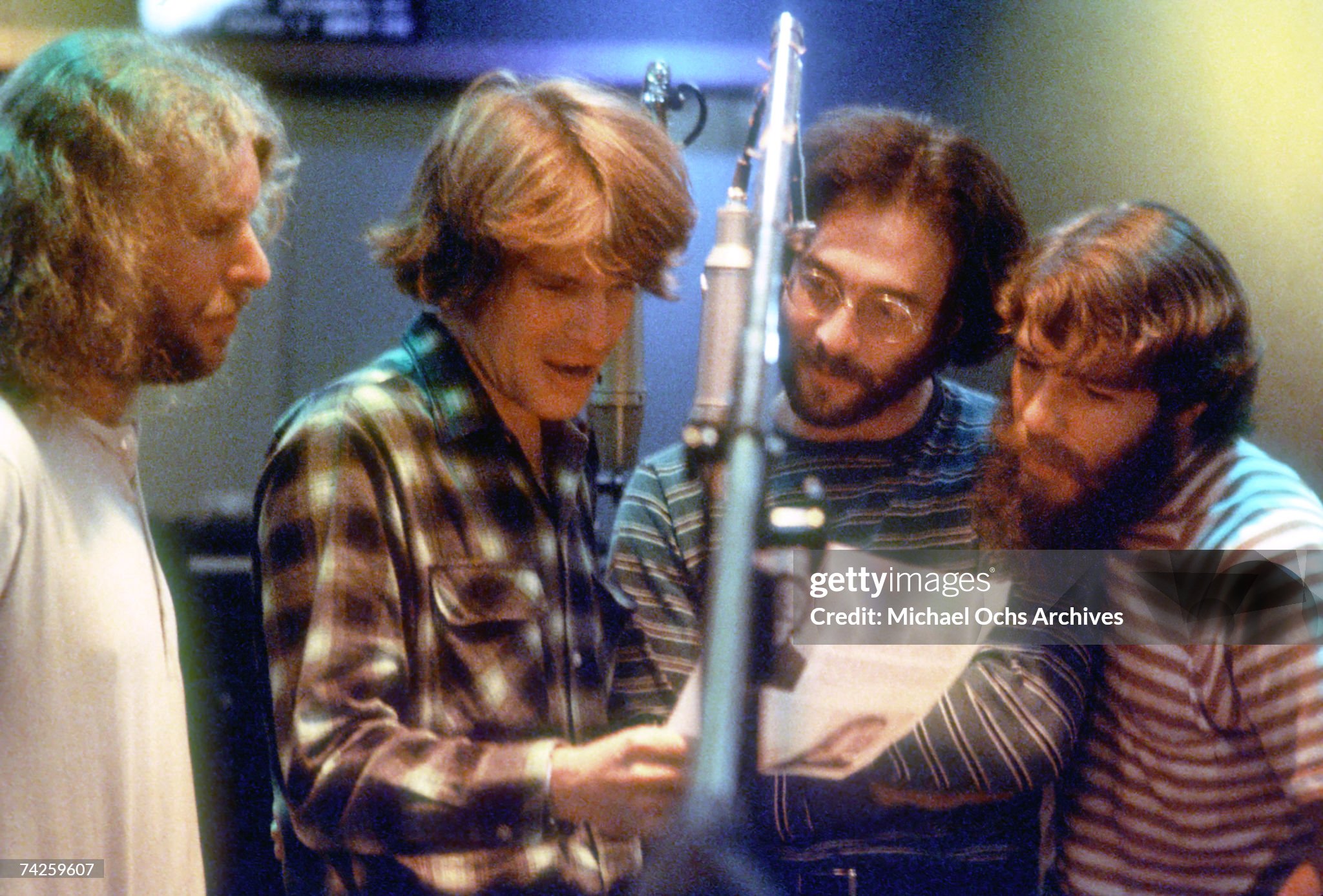
The restless spirit of the open road, caught between truth and disguise
When Creedence Clearwater Revival recorded “Bootleg (Alternate Take)”, they were at the height of their creative surge—a band surging through the late 1960s with an energy that seemed to distill the very pulse of American grit. Originally appearing on their 1969 album Bayou Country, the song helped define the swamp-rock sound that would come to characterize their identity. While the standard album version was never released as a single and thus did not chart independently, it contributed to the record’s commercial triumph: Bayou Country climbed into the U.S. Top 10, propelled by the runaway success of “Proud Mary.” The alternate take—later unveiled on expanded reissues—offers a more unvarnished glimpse into CCR’s raw studio process, capturing their unfettered drive before polish and precision fully settled in.
In its essence, “Bootleg” is a road song haunted by questions of authenticity—one that blurs the line between wanderer and fugitive, artist and imposter. John Fogerty’s snarling vocal delivery moves like a storm over the steady churn of Tom Fogerty’s rhythm guitar and Stu Cook’s basslines, while Doug Clifford’s drumming anchors it all with swampy insistence. The groove is lean, taut, and soaked in atmosphere; this is music built for motion, for headlights cutting through southern fog. And yet beneath its propulsive surface lies a story about duality—about running from something and toward something else at once.
Thematically, “Bootleg” continues Fogerty’s fascination with mythic Americana—the same dusty highways and bayou deltas that populate CCR’s larger body of work. The title itself plays on ambiguity: a “bootleg” can be contraband liquor, an illicit recording, or even a stolen identity. That multiplicity resonates within the song’s restless mood. Its narrator seems both pursued and complicit, caught in the shadowy space between performance and self-preservation. In this way, “Bootleg” becomes an oblique commentary on fame itself—the uneasy burden of being copied, commodified, and misunderstood in an industry already obsessed with replication and image-making.
The alternate take deepens that reading. Stripped slightly rougher than the album cut, it feels more like a field recording captured on the margins of civilization—a reminder that CCR’s power was not born in studio perfection but in their ability to conjure myth from minimal means. Every note feels improvised yet inevitable, every word barked out like an invocation. You can hear in it the tension that would soon both define and fracture the band: their longing to stay grounded in roots music even as fame dragged them further from its soil. “Bootleg,” in any form, remains a testament to Creedence Clearwater Revival’s paradoxical gift—their knack for making songs that sound timeless precisely because they are forever chasing something just out of reach.